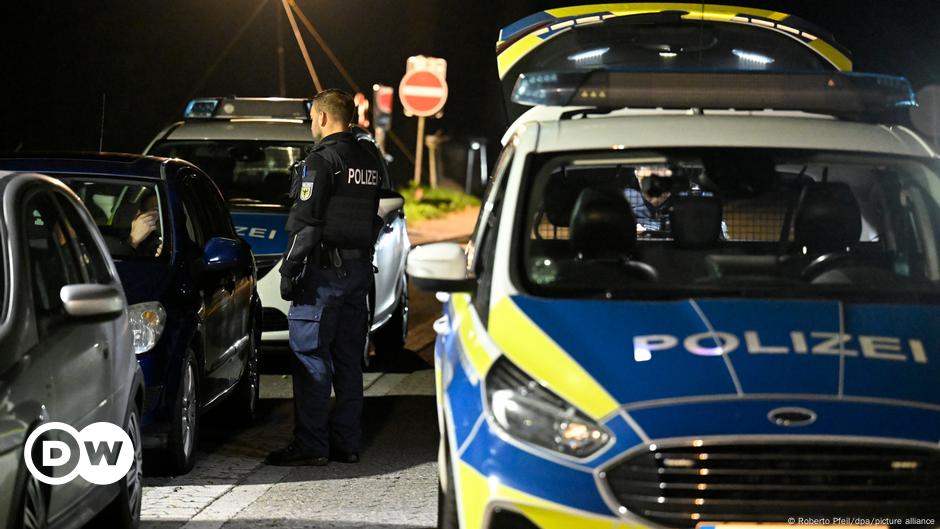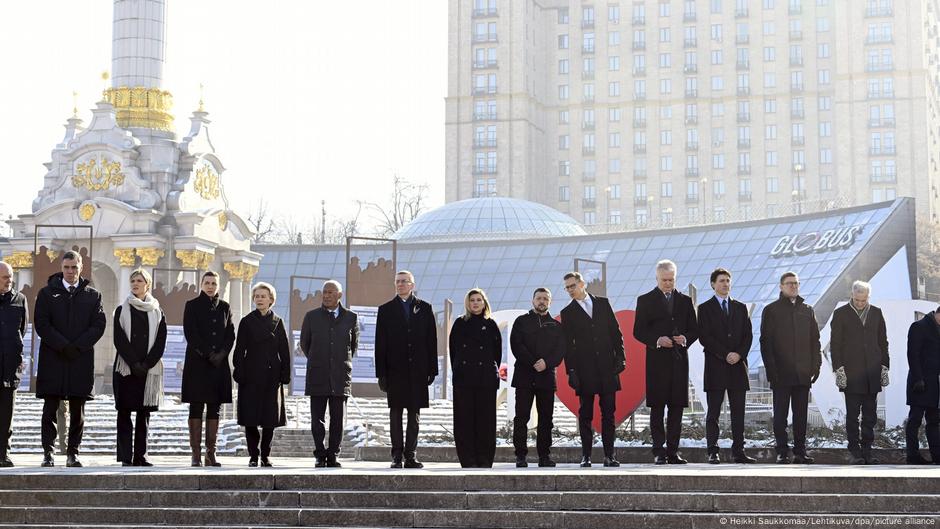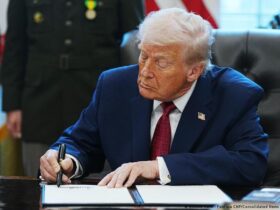The attack on the Magdeburg Christmas market – and the heated political climate that has gripped Germany as a result – has underlined how central the issues of domestic security and extremism will be to the next German government.
But other topics also remain important. How does the government combat irregular immigration while promoting skilled immigration? And how does it protect against cyber-attacks, uphold the rule of law, and strengthen democracy against enemies within and without? These are some of the key challenges the next German government will face in 2025, regardless of which party is in power.
And yet, if you ask some members of the Bundestag, all these challenges must first be overcome to overcome the crisis facing the country’s economy. Major German companies like Volkswagen are in deep trouble, with people worried about their jobs and struggling with rising prices and rents.
High energy prices and shortage of skilled workers
Marco Vanderwitz of the center-right Christian Democrats (CDU) was federal commissioner for the east German states until 2021, and told DW: “The biggest problem in this country right now is that our economy is floundering. And it’s really The bigger problem affecting the foundation and the future is that trust in politics has diminished among our economic leaders.”
The government is being blamed for high energy prices, high wage levels, deteriorating infrastructure, shortage of skilled workers and too much bureaucracy.
The last point in particular is demonstrated by the country’s sluggish digitalization, according to former Green Party leader Omid Nouripour.
“We have a double crisis, both economic and structural,” he told DW. “For example, you can see it in government offices, where fax machines are still considered the top means of communication. And you can see it in the investment backlog in this country.”
These problems have been exacerbated by external cyber attacks on infrastructure such as the country’s power grid, most of which are from Russia. “The most important thing is to protect critical infrastructure,” Nouripour said. “We have a lot of vulnerabilities in this area. And a lot of players are putting pressure on critical infrastructure.”
Therefore, strengthening the police and intelligence services is an important task for the coming year.
A tough stance on immigration is very likely
Two other issues that have long been recognized as problems will pose an even greater challenge to a future government than they have faced so far: immigration and the question of how to protect the country from the apparent rise of populism and far-right extremism. How should it be dealt with? The attack on the Christmas market in Magdeburg highlighted this problem.
Both the number of applications for asylum and the estimated number of irregular immigrants have declined in recent years, even though the European border protection agency Frontex estimates that some 166,000 people will cross into the EU irregularly in the first nine months of 2024. Tried to enter.
Germany has reimposed controls at all its borders, and the conservative CDU, which has a good chance of leading the next government after February’s elections, has now come out in favor of turning back refugees at the borders.
Local officials say they can’t cope
Many local authorities say they have reached their limits when it comes to receiving and caring for refugees. Stefan Seidler of the Südschleswig-Holstein Voters Association (SSW), the party representing Germany’s Frisian and Danish minorities in the north of the country, says he has seen it firsthand.
“What I can say from my perspective is that municipalities are facing a huge task at the moment that they can hardly handle,” he told DW. “They need support from the federal government.”
Wanderwitz, who is not running as a candidate for the Bundestag again, has a different opinion. He believes immigration is manageable, although he knows how polarizing the issue is. “The numbers have gone down and they feel the problems have been exaggerated,” he said. Vanderwitz said, “I really only know local politicians who say it’s a lot less bad than it was in 2014 or 2015. But despite that, everyone has raised the white flag somehow.”
Nouripour believes that the number of refugees heading to Germany could increase again. He cautioned, “We know that the situation in Ukraine could lead to more refugee arrivals and we could see further escalation of some conflict in the Middle East.”
Protecting the Federal Constitutional Court
Meanwhile, the far-right Alternative for Germany (AfD) is expected to make gains in the February election.
“We are currently facing enormous pressure from the far right,” Seidler warned. He is concerned about the protection of the rights of minorities. “We are currently seeing those gaining momentum who think that only the majority takes decisions. But as a minority politician, I can only say clearly and unequivocally: A good democracy is for its minorities Also shows consideration.”
That’s why Seidler supported the motion put forward by the opposition CDU/CSU bloc in the Bundestag, the centre-left Social Democrats (SPD) and the Greens, who currently form a minority government, and their former coalition partner, the neoliberal Free Democrats. FDP) to protect the independence of the Federal Constitutional Court against political interference. This reform increases the need for changes to the court’s rules, something that can only be agreed upon by the required two-thirds majority in the German parliament – even at a time of fierce election campaigning.
All politicians agree that 2025 will be another difficult year, with fierce conflicts and many crises to be resolved.
This article was originally written in German.
While you’re here: Every Tuesday, DW editors provide insight into what’s happening in German politics and society. You can sign up for the weekly email newsletter Berlin Briefing here.






Leave a Reply